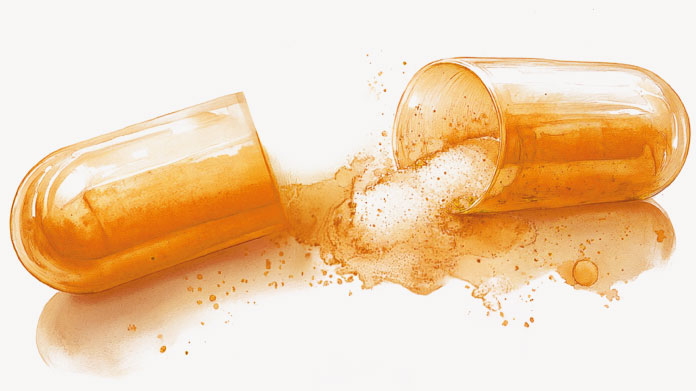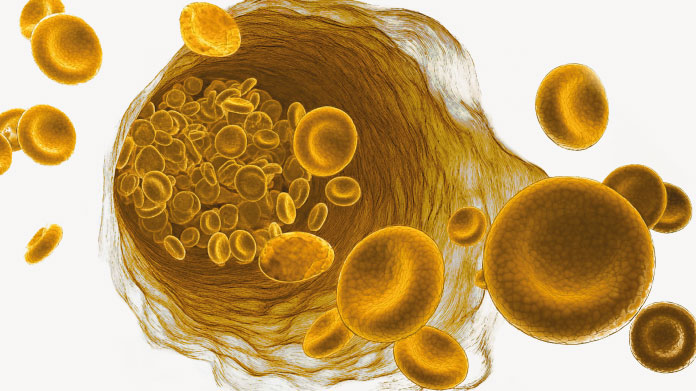A lack of potassium: how to recognise and prevent it
Potassium is an essential mineral, involved in nervous system and muscle function ... Suffice to say that a lack of potassium can quickly become a real risk to health. Here’s how to identify and correct such deficiency.

Potassium deficiency: what are the symptoms?
Potassium deficiency, or hypokalemia, manifests in several ways:
- muscle cramps, pain or weakness;
- fatigue;
- sluggishness and pain in the gut and abdomen.
It’s important to note, however, that hypokalemia is often asymptomatic, though it can still pose a significant risk to health: on the one hand, kidney problems, and on the other, dysfunction of the heart muscle (1). To confirm whether you are definitely deficient in potassium, be sure to seek advice from a health professional.
There are many potential causes of a lack of potassium: certain diseases, but also excessive use of diuretic drugs, alcoholism and severe diarrhoea.
What are potassium’s effects on the body?
Potassium participates in several of the body’s vital functions. It plays a role in:
- normal nervous system function. Able to pass through the neuronal membrane, the potassium ion (K+) is involved in regulating nerve impulses transmitted along neurons ;
- good muscle function. The strength of a muscle contraction relies on potassium, whether it’s an involuntary contraction (intestinal, vascular, bronchial, cardiac muscles) or a voluntary one (skeletal muscles);
- maintaining normal blood pressure. More specifically, it is thought to have a direct vasodilatory role which may improve blood flow, and promote the elimination of sodium (a vasoconstrictor that can be damaging to cardiovascular health) (2).
Which foods and dietary supplements contain this mineral?
To reduce the risk of any complications associated with potassium deficiency, it’s important to ensure your daily diet provides an adequate intake of this key mineral.
Which foods contain potassium?
There are many foods that can help you meet your daily requirements for potassium:
- green herbs: parsley, basil … ;
- seaweed: but be careful of its high sodium content if you suffer from hypertension;
- spices: saffron, paprika, chilli, cumin… ;
- coffee;
- pulses: haricot or soya beans … ;
- bananas, apricots… (3)
Dietary supplements that contain potassium
Along with eating a varied, balanced diet, certain supplements can help you increase your potassium levels :
- potassium orotate (as in the product Potassium Orotate), recognised as being the easiest form for the body to absorb;
- potassium bicarbonate (as in Potassium Bicarbonate), a classic form of potassium ;
- or indeed a mineral complex, (such as MultiMineral Complex), which as well as potassium, provides many other trace-elements.
References
- Fumeaux, I. K. Z. (2007). Hypokaliémie: diagnostic et prise en charge. Rev Med Suisse, 3(101), 574-6.
- Agostoni, C. V., Bresson, J. L., Fairweather Tait, S., Flynn, A., Golly, I., Korhonen, H., ... & Moseley, B. (2010). Scientific Opinion on the substantiation of health claims related to potassium and maintenance of normal muscular and neurological function (ID 320, 386) and maintenance of normal blood pressure (ID 321) pursuant to Article 13 (1) of Regulation (EC) No 1924/2006.
- Table Ciqual. ANSES. Consulté en septembre 2020.
Keywords
65 Days
Very happy with the order and the…
Very happy with the order and the prompt team's response to an identified issue with my order.
KUQI Fatmir
72 Days
15 + years as a customer
I have been using their products for over 15 years as I find both the quality and pricing excellent.
Del Chandler
74 Days
Good quick delivery
Good quick delivery
Timothy O Shea
75 Days
Good service
Good communication following order. Product came within the time frame and was well packaged. The only confusing thing I found was in checking out. For some reason it is not clear how to do so and the current system should be improved.
Joe O Leary
84 Days
Simple and fast.
Simple and fast.
Nina
85 Days
Great product was definitely what is…
Great product was definitely what is says and arrived on without issue
customer
91 Days
I love reading those product facts on…
I love reading those product facts on Supersmart.com. Effective health products making permanent changes to my blood-work results and testes. However, I also have to order capsules from other websites.
NORDGULEN Olav
93 Days
Great products
Great products Very easy to choose, to order… and to get at home
Federica mastrojanni
96 Days
Service rapide et bons produits
Service rapide et bons produits
customer
97 Days
Good products and fast delivery
Good products and fast delivery
Trusted
102 Days
Does what it says on the can
I believe in this product Made to highest standard The ordering process is straightforward Delivery time prompt Excellent product, excellent service Happy customer ❤️
Sheba Kelleher
107 Days
Excellents produits
Excellents produits. Rien à dire si ce n'est qu'ils sont très chèrs.
MJS_France
109 Days
Very good supplement
Very good supplement
Glaveash
110 Days
Supersmart supplements are really…effective
Supersmart supplements are really effective and have helped me and family members and friends to improve their health including some of us with severe health problems including some with no existing medical treatment.
Anne Georget
111 Days
SuperBig Supersmart
SuperBig Supersmart
Pierre



